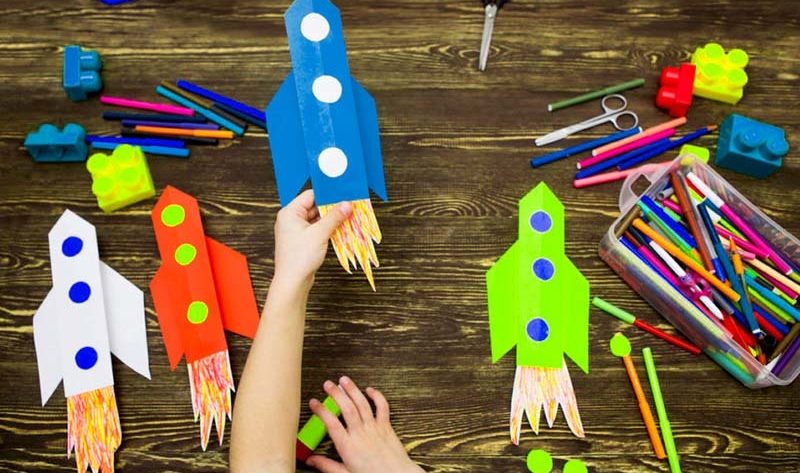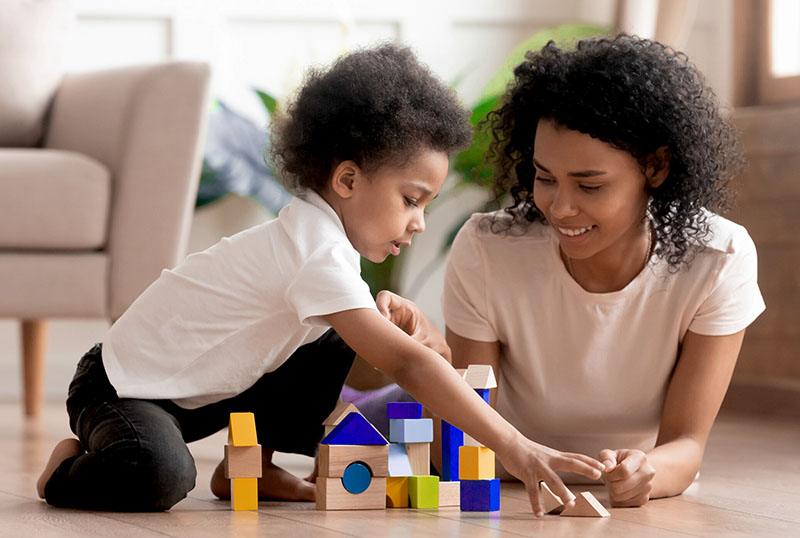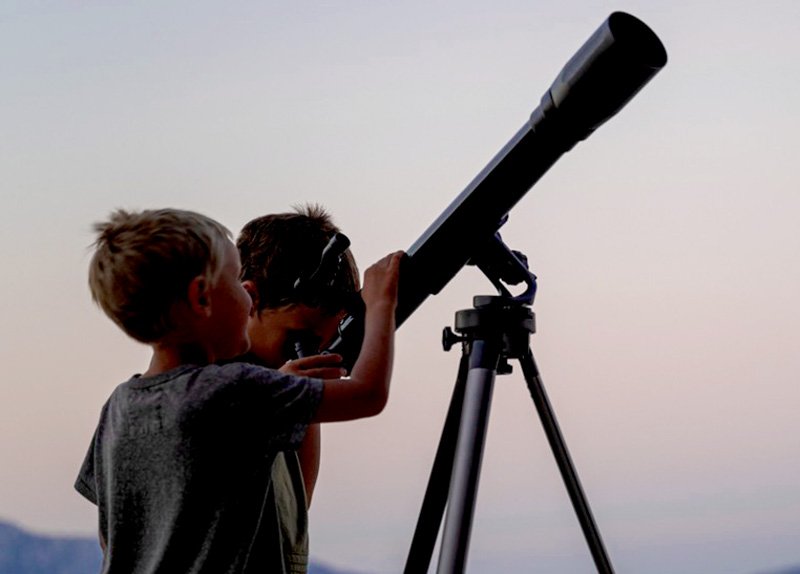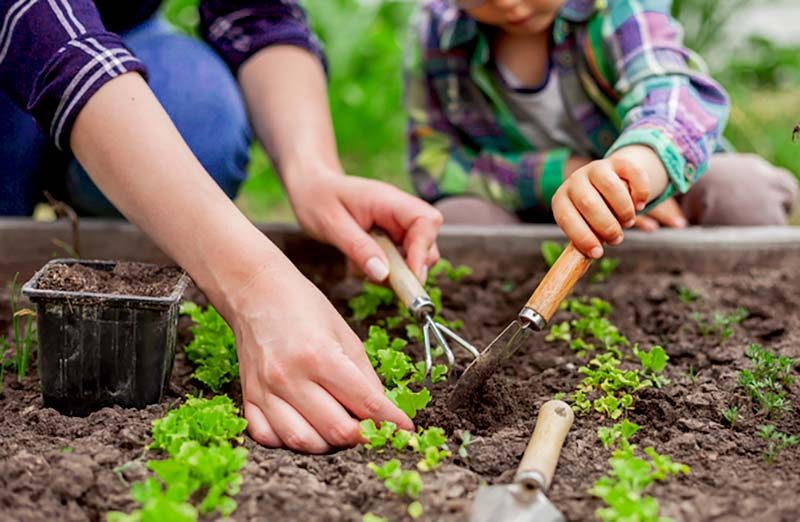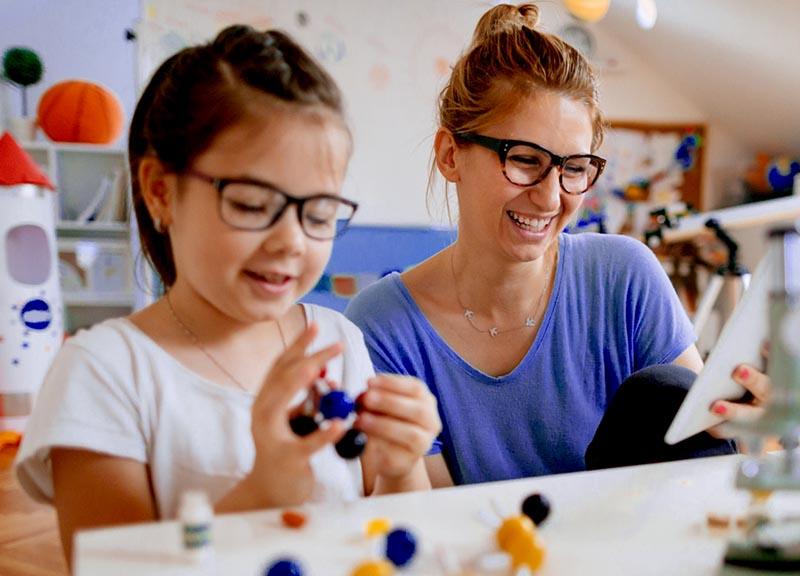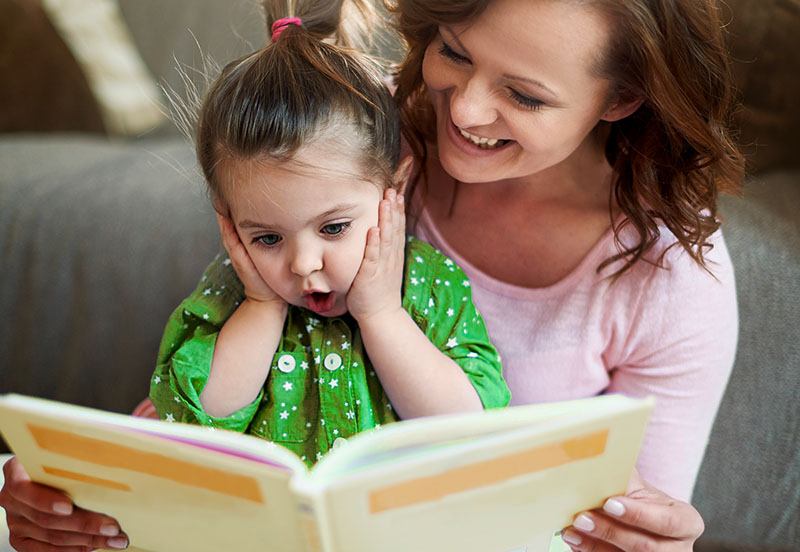Fostering an appreciation for science from a young age will help your children grow into curious and smart adults and develop their critical thinking and analytical skills.
You don’t need to be a scientist yourself to introduce topics of science to your kids. Even some simple things like a walk in nature could be an occasion to talk about natural processes in a language that your kid can understand easily.
Kids are naturally inclined to ask questions and wonder about the world around them so it’s good to be prepared with the best ways to answer them and keep their curiosity alive.
Why is it Important to Talk About Science with your Kids
Science is everywhere around us. It explains how things in the world work, from the stars to the smallest items in our own homes.
Kids naturally want to know how things work, so teaching them easy science from a young age is important for their development and their understanding of the world.
Learning will also develop your child’s brain, making it easier to progress in school, and sparking an interest in various hobbies.
Now let’s look at some activities that could help you introduce matters of science to children of different ages.
Let Them Try to Find Answers
Inspire curiosity and critical thinking in your kid by asking them questions about the world around them. Ask them both about the little daily things as well as the big processes, like sunrises and sunsets.
Let them think and try to find answers for themselves. Be supportive and never react badly when they don’t get the answer correctly, but focus on the thinking process itself.
Don’t give the answer directly when they fail to get it, but guide them towards it instead and always congratulate them when they guess correctly.
Make it Relatable to Them
A key to making a subject interesting to any child is to make it relatable. Talk about objects in their daily life, for example, take a toy and discuss the way it’s working in terms of physics in a way that the child can understand you.
When you need to explain an abstract concept, use simple analogies with objects they know well, or experiences they can relate to, as children don’t start developing abstract thinking until later on.
Look at the Stars
Stargazing is not only a pleasant and relaxing activity to spend the warm evenings by. It could also spark curiosity and awe and teach your kid a lot of things about the Universe.
Let your child look at the stars and wonder about the celestial bodies. Let it try to explain to itself how these things work, and only after that give realistic information.
There are countless things kids can learn while looking at the night sky about how the Universe works.
Plant a Garden
Taking care of plants is a cool activity for spending quality time with your children and it can teach them a lot about science in a natural way. Children will be excited about seeing the plants growing and they will develop skills like responsibility.
While planting a small garden, let your children ask questions about how plants grow and live and give information based on your real experience with the particular plants you’re taking care of.
Get different seeds, plant them, and take notes during their growth together with your children. See where different seeds grow best and which ones grow the fastest.
DIY Experiments at Home
There are various DIY experiments that you could do at home that don’t require any special equipment. Kids tend to learn better from action, and the experiments will also keep them interested and curious.
Science Kits for Children
Science kits are gold for teaching science to children, as they are usually made in a way that sparks interest in the child and lets them learn in a hands-on way.
Such kits are completely safe too, and they are a good option if you don’t have the time or the conditions for DIY experiments in your home.
Science Books, Documentaries, Museums
Looking at science books for children is another great way to let them learn and you can also find many documentaries that are made in such a way that they’re interesting both for children and adults.
Visiting science museums for children is an even better option because they usually offer various activities that teach the children numerous things about different topics of science.
Who knows, maybe a science-related game is going to spark a scientist in your kid and determine its future.
Expect Difficult Questions
Children are pure beings, so they tend to challenge controversial topics like animal testing or the animal food industry, so be prepared that you are going to have to answer some questions that are quite difficult even for adults themselves.

